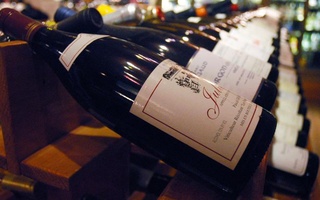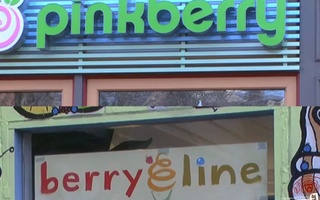During the Blind Boys of Alabama’s performance at the Berklee Performance Center Friday night, frontman Jimmy Carter was constantly laughing. When he walked onto the stage and was greeted tumultuous applause, he let out a velvety chuckle. “All right,” he exclaimed, “I wish everybody felt like that.” Carter and the rest of the Blind Boys of Alabama maintained a high level of good-humored ease until they exited the stage giggling, each with one hand placed on the shoulder in front of him.
The Blind Boys of Alabama has existed for more than 70 years, and the group’s career has been characterized by the infectious joy it exhibited on Friday night. The Blind Boys seemed to enjoy their performance just as much as their delighted audience and swayed, jived, and chuckled through their energetic set.
The group performed many songs from their new album, “Take the High Road,” and the group’s strong harmonies belied their storied history. The Blind Boys of Alabama has existed since 1939, when the group formed at Alabama Institute of the Negro Blind. The group was heavily involved in the civil rights movement, performing at benefits for Martin Luther King, Jr., and has since played all over the country, including at the White House. The current band consists of three blind singers, one blind drummer, and three sighted instrumentalists.
The group showed its abilities in new and old songs alike. “I Know A Place,” one of the strongest songs on “Take the High Road,” sounded powerful because its dense harmonies evoked the mood of the protest marches in the early ’60s. The eponymous title track shone through in its simplicity: the song began with a confusing conglomeration of sound, and then all excess noise fell away so that the richly harmonized voices shone through.
The group’s rendition of the classic hymn “Amazing Grace” highlighted one of the group’s unique strengths: adding bluesy funk to traditional gospel. The prescene of a groovy synthesizer and Carter’s prolonged groans that seem to strain his voice resulted in renewed exuberance on stage and in the audience.
Needless to say, the performers seemed quite comfortable with each other and displayed their chemistry and camaraderie throughout. Visual clues are not possible with this group, but each performer is able to sense when the other is finished and jump in. Sometimes the singers literally jumped up from their seats in their exhilaration, only to be guided back down by one of the other sighted performers. Carter gave each instrumentalist a solo to “tell us how they felt,” and the singers acknowledged the musicians’ skill by bowing their heads, tapping their feet, and occasionally turning their faces transformed by admiration to the stage lights above.
Although the group formed and has had much more of a social impact in the South, Carter assured his audience that Boston was one of his favorite cities. Towards the end of the concert, he walked up and down the aisles, causing the women to genuflect and swoon and the men to thump him affectionately on his shoulder. When he got back on stage, Carter chuckled again into the microphone—a fitting end to such a joyful performance.
—Staff writer Virginia Marshall can be reached at virginiarosemarshall@college.harvard.edu.
Read more in Arts
THEESatisfaction Soar in Psychedelic DebutRecommended Articles
-
Blind Man's ColourIf you read Kanye West’s blog for any reason beyond pure entertainment or comedy, then you may have heard of
-
Seeing Change In EducationWhile it is rare for book or magazine covers to be printed in Braille, the cover of the fall issue of the Ed School magazine, “Ed.,” was specially embossed in the cells of raised dots.
-
 HBS Students Enter Prestigious Wine Tasting Competition
HBS Students Enter Prestigious Wine Tasting Competition -
 Pinkberry v. Berryline Taste Test
Pinkberry v. Berryline Taste Test -
 HRO’s ‘Tosca’ a Triumph
HRO’s ‘Tosca’ a Triumph -
Preview: Blind Boys of AlabamaCarter lived in Boston for much of his life and looks forward to returning for the group’s upcoming concert.













